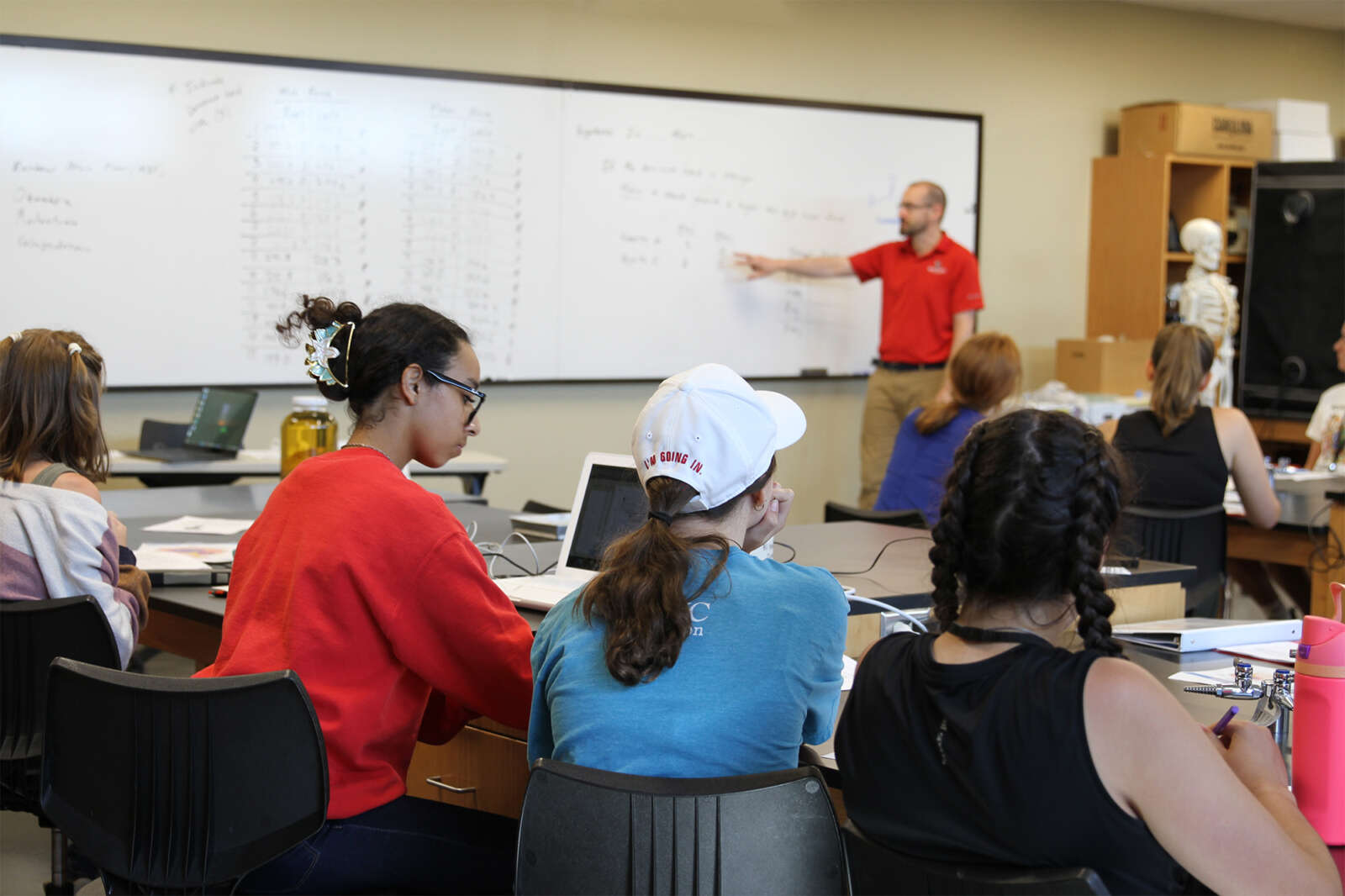BCYC Immersion Psychology Track

This track is available:
- Session 2 (June 14-19, 2026)
Why do we think and act the way we do? In other words, how do we explain our behavior? The mechanisms of behavior and experience require an understanding of the brain from top down (anatomical) and bottom up (individual cells: neurons). In the BCYC Immersion Psychology Track, students will explore brain mechanisms from a variety of perspectives. Students will perform dissections of mouse and sheep brains, while learning about differences in regional processing of sensory and motor information. Modeling a neuron, students will learn how electrical and chemical signals form the basis of neural communication. Discussions on the basics of neuronal firing will expand into modern neuroscience and the fields of optogenetics and neural stimulation, which are seeking to unravel behavior circuit-by-circuit. After building an understanding of normal brain function, we will explore the brain from the perspective of disorder and damage. Students seeking a deeper understanding of the brain and behavior will get to experience and learn a great deal from this Neuroscience-focused track.
Track Instructor

Assistant Professor, Biology
Dr. Stubblefield grew up throughout the Midwest as his parents were both officers in the United States Air Force. His family ultimately settled in northern Illinois where he considers “home.” He attended the University of St. Thomas in St. Paul, Minnesota and graduated in 2007 with a Bachelor of Science Degree. Dr. Stubblefield is fascinated by the science of time and conducted research in the biological timing, or circadian rhythms, of metabolism at the University of Texas Southwestern Medical Center, where he completed his PhD in Neuroscience in 2016. He continued his research on the molecular mechanisms of biological timing with his Postdoctoral Fellowship at the University of Texas Health San Antonio. He made discoveries related to time-of-day differences in the brain’s response to neurotrauma in mice. In addition to his teaching responsibilities at Benedictine, Dr. Stubblefield mentors students in neuroscience research on circadian rhythms, metabolism and neurotrauma.
Ph.D. in Neuroscience
University of Texas Southwestern Medical Center, 2016
Research Interests: Molecular mechanisms of biological timing
